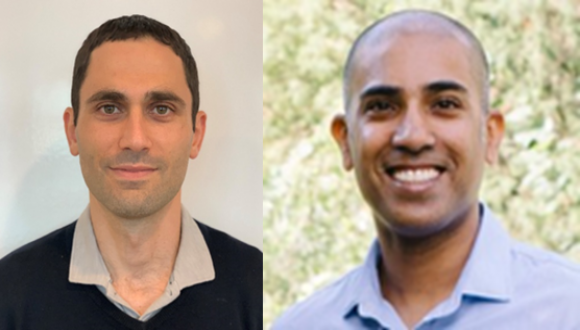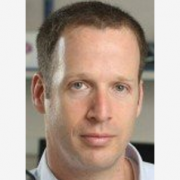July 2022: Ben-David & Madi: Risks in CRISPR therapeutics
A study by Drs. Uri Ben-David and Asaf Madi, Edmond J. Safra affiliates (Medicine), identified risks in the use of CRISPR therapeutics.
A study by Drs. Uri Ben-David and Asaf Madi, Edmond J. Safra affiliates (Medicine) and colleagues identified risks in the use of CRISPR therapeutics – an innovative, Nobel-prize-winning method that involves cleaving and editing DNA, already employed for the treatment of conditions like cancer, liver and intestinal diseases, and genetic syndromes. Investigating the impact of this technology on T-cells – white blood cells of the immune system, the researchers detected a loss of genetic material in up to 10% of the treated cells. They explain that such loss can lead to destabilization of the genome, which might cause cancer.
Dr. Ben-David explains: "The genome in our cells often breaks due to natural causes, but usually it is able to repair itself, with no harm done. But sometimes a certain chromosome is unable to bounce back, and large sections, or even the entire chromosome, are lost. Such chromosomal disruptions can destabilize the genome, and we often see this in cancer cells. Thus, CRISPR therapeutics, in which DNA is cleaved intentionally as a means for treating cancer, might, in extreme scenarios, actually promote malignancies."
Dr. Madi and his student Ella Goldschmidt, Edmond J. Safra MSc fellow (Borenstein lab, Computer Science and Madi lab, Medicine) explain: "Single-cell RNA sequencing and computational analyses enabled us to obtain very precise results. We found that the cause for the difference in damage was the exact place of the cleaving on each of the three chromosomes. Altogether, our findings indicate that over 9% of the T-cells genetically edited with the CRISPR technique had lost a significant amount of genetic material. Such loss can lead to destabilization of the genome, which might promote cancer."
The research was published in the leading scientific journal Nature Biotechnology and had an extensive coverage in the media: Haaretz, JPOST, I24NEWS , Sciencedaily,, JEWISH PRESS, Fiercebiotech, YNET, Nanowerk news-medical, Ibtimes Ehtrend, ma-clinique, turkish-media.





